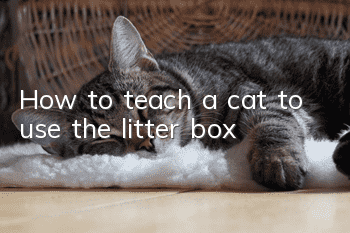Can cats be dewormed after taking a bath?

Many novice parents are not sure how long it will take for cats to be bathed and vaccinated after receiving their new home
Today, the editor will tell you some things to note about deworming vaccines and bathing
Recommended sequence: one week after the first dose of vaccine (received to the new home) internal and external deworming (one week after arriving home) second dose of vaccine (21 days after the first dose) third dose of vaccine (four days after the second dose) Month-old cats are exempted from the bathing rabies vaccine (cats who do not go out often are recommended to be vaccinated after one year old)
First shot of vaccine
The first dose of vaccine is generally provided by the seller. One week after the first dose of vaccine, the cat is taken home. On the one hand, it ensures that the cat will not have a stress reaction of moving one week after being vaccinated. On the other hand, the seller allows the cat to observe the cat. The status after vaccination.
After vaccination, the kittens are in a state of low immunity. It is safer for the seller to pass the dangerous period after the first dose of vaccine. Be sure to ask the seller to provide a vaccine record book.
Deworming inside and outside the body
After returning to the new home, do not deworm the cat internally or externally, and establish a trusting and intimate relationship with the cat.
Kittens establish a relationship very quickly. Generally, the cat can be dewormed after a week of adaptation to the new home. (Adopted stray cats must be dewormed before returning home).
External deworming is very effective against flea and tick eggs on the body surface. If adult worms are found, be sure to disinfect the carpet corners and other places where cats often stay (repellent spray available for cats). External deworming is also effective in preventing and treating ear mites.
Choose internal deworming before the second dose of vaccine to ensure the effectiveness of the vaccine. It takes about a week to complete internal deworming, so internal deworming must be completed one week before the vaccine.
Thereafter, internal and external deworming will be carried out every three months. Cats that eat raw meat need to be dewormed internally every month, and cats that often go out need to be dewormed externally every month.
Second dose of vaccine
There needs to be an interval of 21 days between the first dose of the vaccine and the second dose of the vaccine. If the child is four months old or older when receiving the second dose of vaccine, the third dose of vaccine may not be given. By the time the kittens reach four months of age, maternal antibodies have been completely lost, and the vaccination antibodies received at this time remain stable.
The third dose of vaccine
After reaching the age of four months, take the third dose of vaccine. The effect of this vaccine lasts longer. There is no need to vaccinate every year in the future. You can vaccinate once every three years or do antibody testing regularly.
Newly arrived cats will have a peculiar smell, which many parents cannot tolerate. Before completing the vaccine, clean it with dry cleaning powder or wipe it with a damp towel. One week after completing the second dose of vaccine, cats over three months old can take a bath, be sure to keep warm, take a quick bath with warm water, and blow dry in time.
Cats that do not go out after being washed once do not need to be bathed frequently, especially short-haired cats. After six months, long-haired cats can be bathed every three months, and short-haired cats twice a year are enough.
- What to do if you are allergic to cats. Bathing your cat frequently can relieve the symptoms.
- What does it mean when a cat squints at people?
- What does the cat think when the scavenger touches the cat’s head?
- How to toilet train a 2-month-old kitten
- Clinical examination of cat heart disease, be wary of the invisible killer of cats!
- The cat is rolling on the ground and rubbing everywhere
- What will happen if a cat doesn’t bask in the sun?
- What should I do if my cat has a cold?
- What causes cat ears to bleed?
- What is the function of a cat’s whiskers?



